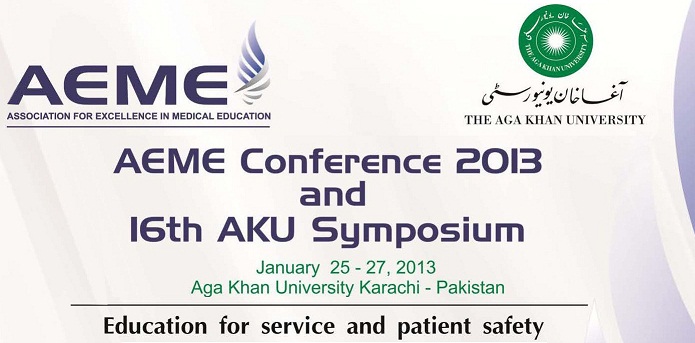Day 1 : Oral Presentations (Theme: Evaluation & Quality Assurance)
Evaluation of postgraduate diploma in bioethics program
Location
Lecture Hall 1
Start Date
26-1-2013 10:50 AM
Abstract
Background: Started a one-year diploma program in bioethics for healthcare related professionals in 2006. The broad objective of this program is to develop human resource in the field of bioethics in Pakistan to promote ethics teaching.
Objective: To perform an outcome based evaluation of CBEC’s bioethics diploma program for achievement of the program objectives.
Methods: Outcome logic model was applied through a questionnaire based approach. Data for direct output was retrieved from CBEC electronic databank and faculty. A mix of close-ended and open-ended questions were asked from the graduates of CBEC from 2006 to 2010. The quantitative feedback was analyzed for frequencies and percentages. Content analysis was conducted for the open-ended responses.
Results: Four batches have graduated from the inception of the program till the time of evaluation. A total of 50 students were enrolled, while 41 graduated during this period. Ten of the graduates have completed their Master degree in bioethics from different Institutes. Sixteen are involved in institutional ethics committee either as chair, secretary or members. The study questionnaire was filled by 31 (76%) of the 41 graduated students. All respondents believe the diploma has increased their knowledge of ethics and they are involved in disseminating the acquired knowledge through presentations (100%), seminars/ conferences (93%), ethics related teaching and awareness activities (70%). Significant number of respondents believe their behavior towards the profession has changed after the diploma (90%) and they have been able to improve the quality of work environment (87%). More than half of the respondents have published ethics related articles after their diploma (58%).The quantitative data revealed a tangible positive impact of the program on the respondents’ professional and personal lives.
Conclusion: The outcomes and interpretation of data have shown that the program has achieved its objective during the first five years of inception.
Evaluation of postgraduate diploma in bioethics program
Lecture Hall 1
Background: Started a one-year diploma program in bioethics for healthcare related professionals in 2006. The broad objective of this program is to develop human resource in the field of bioethics in Pakistan to promote ethics teaching.
Objective: To perform an outcome based evaluation of CBEC’s bioethics diploma program for achievement of the program objectives.
Methods: Outcome logic model was applied through a questionnaire based approach. Data for direct output was retrieved from CBEC electronic databank and faculty. A mix of close-ended and open-ended questions were asked from the graduates of CBEC from 2006 to 2010. The quantitative feedback was analyzed for frequencies and percentages. Content analysis was conducted for the open-ended responses.
Results: Four batches have graduated from the inception of the program till the time of evaluation. A total of 50 students were enrolled, while 41 graduated during this period. Ten of the graduates have completed their Master degree in bioethics from different Institutes. Sixteen are involved in institutional ethics committee either as chair, secretary or members. The study questionnaire was filled by 31 (76%) of the 41 graduated students. All respondents believe the diploma has increased their knowledge of ethics and they are involved in disseminating the acquired knowledge through presentations (100%), seminars/ conferences (93%), ethics related teaching and awareness activities (70%). Significant number of respondents believe their behavior towards the profession has changed after the diploma (90%) and they have been able to improve the quality of work environment (87%). More than half of the respondents have published ethics related articles after their diploma (58%).The quantitative data revealed a tangible positive impact of the program on the respondents’ professional and personal lives.
Conclusion: The outcomes and interpretation of data have shown that the program has achieved its objective during the first five years of inception.

